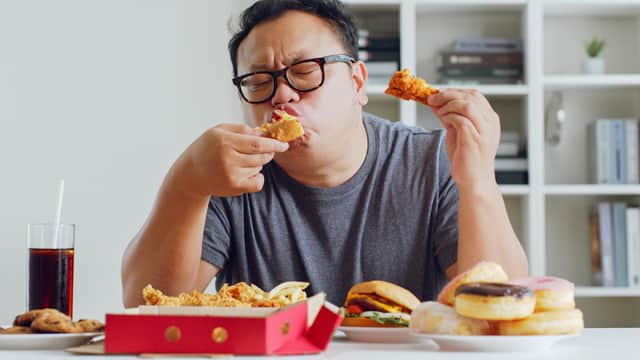Dr's Casebook: Stress and the vicious circle of comfort eating


Dr Keith Souter writes: Recent research from medical researchers in Sydney, Australia has found that there may be a reason why it is so difficult to stop and why it tends to push weight upwards. They suggest that high-calorie comfort foods actually cause changes in parts of the brain that then trigger craving for even more sweet and fat food that can lead to excess weight gain. It is a vicious circle.
The part of the brain involved is called the lateral habenula, which is usually activated to dampen reward signals and tells you when you have had enough. They found that stress overrides this. The result is that it triggers more reward signals that promote eating of more highly palatable, calorie dense food.
Advertisement
Hide AdAdvertisement
Hide AdThis seems to stimulate the person to seek out the sweet and fat calorie dense food, rather than healthier options.
Studying mice under various stressful conditions they investigated how different areas in the brain responded to chronic stress when given various diets. They established that the lateral habenula was normally activated quickly to protect the animal from overeating.
However, when the animals were chronically stressed the lateral habendula was suppressed.
As a result, the mice on a high-fat diet gained twice as much weight as mice on the same diet that were not stressed.
Advertisement
Hide AdAdvertisement
Hide AdThe mice were also assessed with a sucralose preference test, whereby the mice were permitted to choose to drink either water or water that had been artificially sweetened. They found that stressed mice on a high-fat diet consumed three times more sucralose than mice that were on a high-fat diet alone. This suggests that in addition to activating reward signals when eating, stress also produces a craving for sweets. No preference was found in non-stressed mice.
The researchers suggest that when feeling stressed one should try to stick to a healthy diet and stay away from calorie dense sweet and fat rich junk food to avoid falling into the vicious circle of comfort eating.